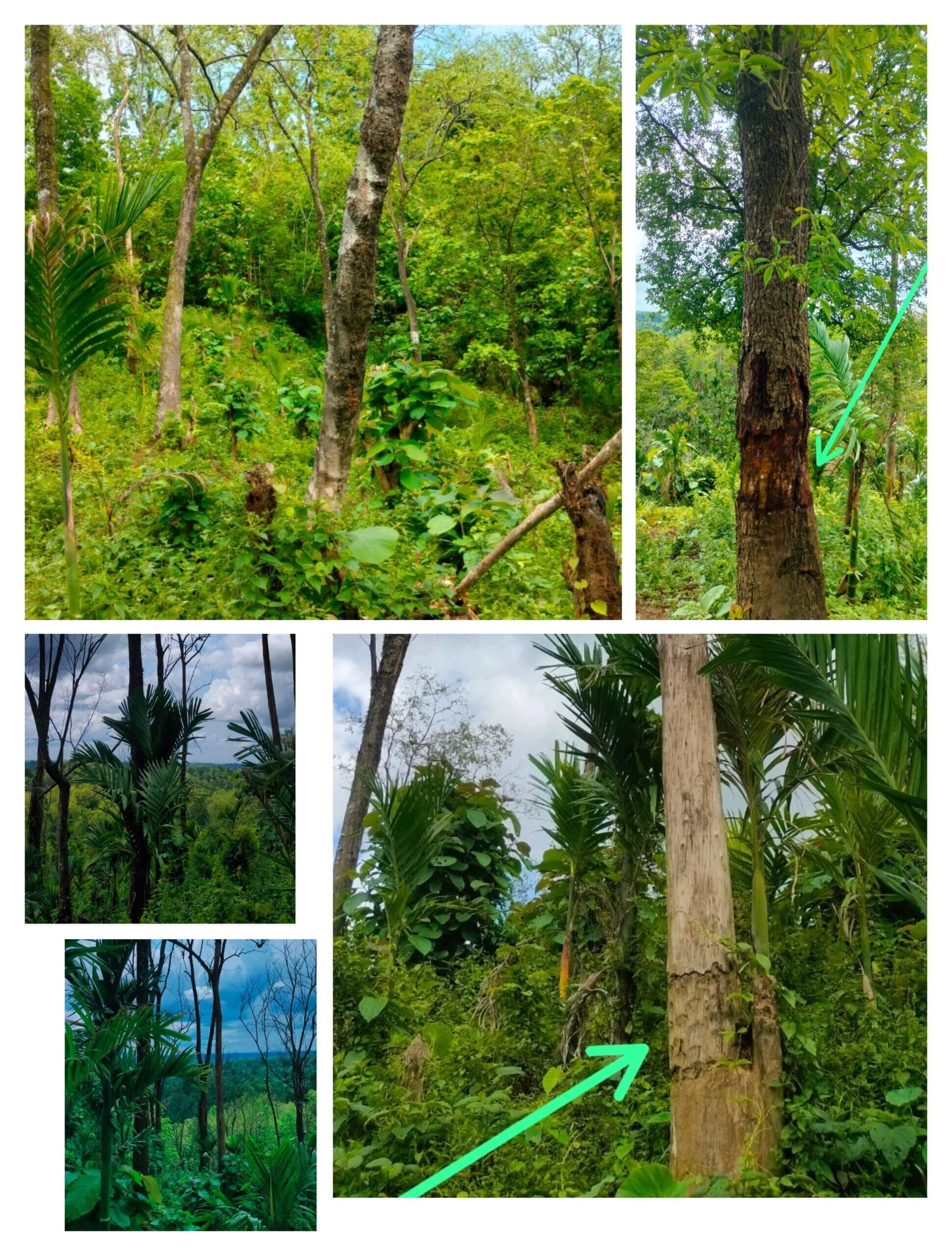
✍️Anupam Pal
Unakoti, the sacred Shaivite pilgrimage site in Tripura—renowned for its thousand-year-old rock carvings, serene waterfalls, and divine atmosphere—is now falling victim to greed, political interference, and administrative apathy. Behind the veil of land “patta” (lease deeds), a silent festival of encroachment is underway, replacing ancient forest lands with betel nut plantations.
There was a time when countless pilgrims prayed under the shadows of intricately carved rock sculptures of Shiva and other deities nestled in the hills. Today, that same land is being stripped of native trees and planted with commercially valuable betel nut trees. This so-called “agricultural expansion” is, in reality, a calculated land-grabbing strategy, allegedly backed by powerful political figures.
Residents of nearby villages like Bagachhara and Deora are reportedly cutting down sacred forest lands under the pretext of having land pattas, and planting betel nut trees in their place. However, most of these claims lack proper documentation or clear demarcation. A forest department official has acknowledged that more than half of the 150-acre stretch is now under illegal occupation.
A forest worker, requesting anonymity, revealed, “No legal procedures were followed during land allotments. Forest protection laws remain confined to paper. Due to pressure from local political leaders, we are forced into inaction.”
This deforestation is not only an environmental disaster—it is also a desecration of religious sentiment. This year, during the Ashtami fair, devotees were unable to perform rituals at the sacred Sitakunda spring due to a dried-up water source. The holy stream descending from the hills has vanished. Pilgrims left the site with tearful eyes. A religious leader even claimed, “This orchestrated attack on Unakoti is an attempt to erase Hindu religious beliefs.”
Ironically, the very political leaders who publicly speak about heritage conservation are the ones allegedly sheltering and supporting the encroachers. Each acre of forest land has turned into a multi-million rupee asset. In this frenzy for profit, Unakoti’s centuries-old ecological balance, religious significance, and potential as a tourist hub are rapidly disappearing.
Alarmingly, the Archaeological Survey of India (ASI) remains silent. Many ancient rock carvings are weathering away due to rain and wind. Some sculptures damaged in past earthquakes have not yet been restored. ASI’s inaction is pushing Unakoti toward irreversible ruin.
According to concerned citizens, immediate steps are necessary to save Unakoti: verify land ownership and establish clear boundaries, evict illegal encroachers, strictly enforce forest laws, conduct independent investigations to stop political interference, enhance ASI’s involvement in preservation, and raise awareness among locals to involve them in heritage protection.
Unakoti is not just a center of Shaivite faith—it is the pride of Tripura, a part of India’s rich cultural heritage, and a potential UNESCO World Heritage Site. Yet, for petty profits and political cover, a sacred trust is being brutally destroyed. This is not only a disgrace to Kailashahar—it is a national shame.
To save Unakoti, a strong public resistance must rise now. Otherwise, “Unakoti” will remain only in history books—with nothing left in reality.



